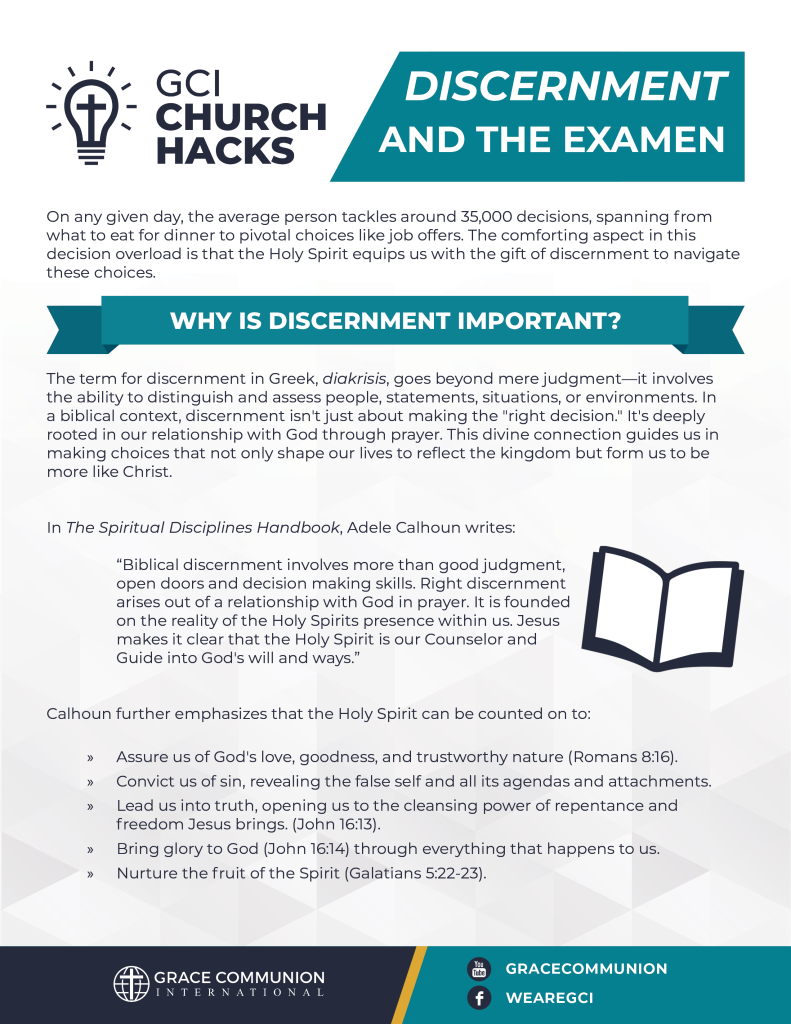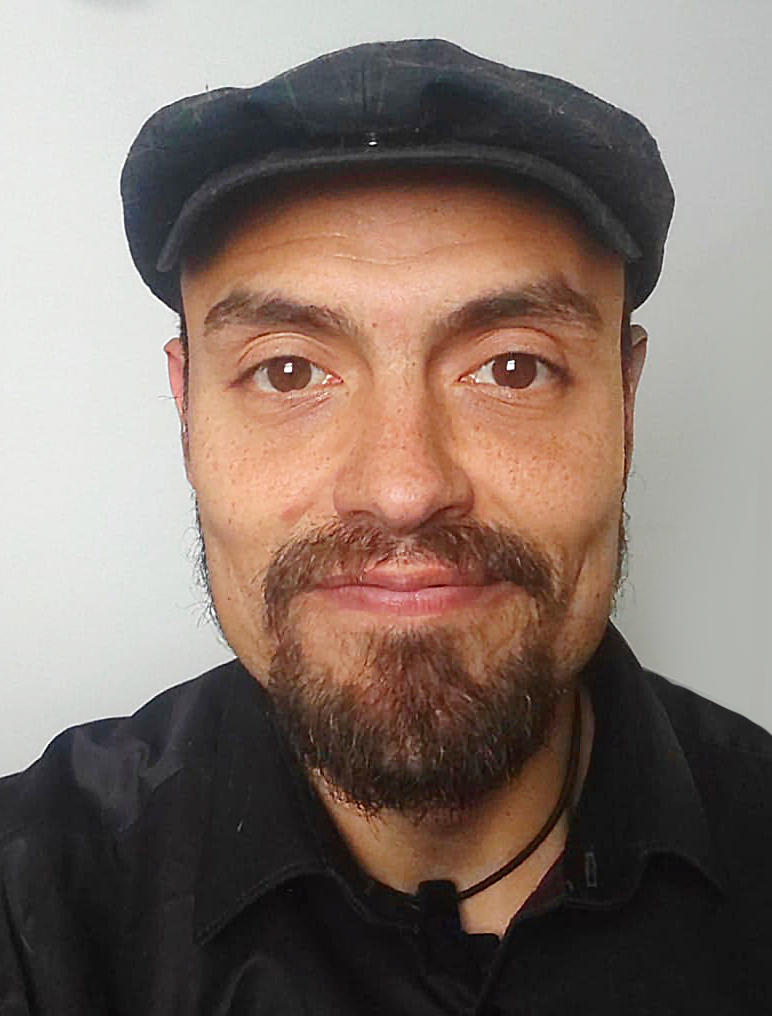The Hour Has Come w/ Dr. Jenny Richards
Welcome to the Gospel Reverb podcast. Gospel Reverb is an audio gathering for preachers, teachers, and Bible thrill seekers. Each month, our host, Anthony Mullins, will interview a new guest to gain insights and preaching nuggets mined from select passages of Scripture in that month’s Revised Common Lectionary.
The podcast’s passion is to proclaim and boast in Jesus Christ, the one who reveals the heart of God, Father, Son, and Holy Spirit. And now onto the episode.
Anthony: Hello friends and welcome to the latest episode of Gospel Reverb. Gospel Reverb is a podcast devoted to bringing you insights from Scripture found in the Revised Common Lectionary and sharing commentary from a Christ-centered and Trinitarian view.
I’m your host, Anthony Mullins, and I’m just so delighted to welcome back our guest, Dr. Jenny Richards, our dear friend from Australia. Jenny, welcome back to the podcast. It’s been a couple years since we had our previous podcast conversation, and you’ve had a lot going on since then.
You have earned a doctorate! I wish we had some sort of celebration soundtrack to introduce you. We feel so good about this labor of love and the intense work that you have done to earn this great achievement. But why don’t you—I don’t want to steal your thunder. So why don’t you tell the listening audience what you’ve been up to?
Jenny: Thanks so much, Anthony. It really is a delight to be back with you again.
And as you’ve said, yes, I guess my main report is that I have just finished a doctorate in law. And I did have to go back to see where things were up to when I was last here, but I think I was about halfway through.
My doctorate did involve theology as well and also social work because it looked at ways in which to assist Christian women who are experiencing domestic and family violence or intimate partner violence as they deal with questions about engagement with the criminal justice system. And I particularly looked at ways in which to develop a response where faith issues and legal issues could be brought together in an integrated response rather than being seen as separate from each other or perhaps even alternatives to each other.
So that’s been the main thing I’ve been doing and along the way, out of that, I was very pleased to have the opportunity to contribute a chapter last year to an edited volume, which is: Thomas F. Torrance and Evangelical Theology: A Critical Analysis, which was edited by Myk Habets and R. Lucas Stamps and published by Lexham Academic Press. And I included a chapter in that volume on using the work of T. F. and J. B. Torrance to address domestic and family violence against Christians, as theirs was the work that I drew from for the theological issues in my thesis.
It’s an excellent volume, I think, which covers the intersection of pastoral work and theology. So, there are all kinds of chapters in there on various issues relevant to pastoring and discipleship and things like that. And I was so grateful to be a part of that project because theology isn’t something for the ivory tower; it exists to serve and further our knowledge and experience of the God who loves us.
And what I loved about contributing to that project was that it aims to provide input that’s immensely helpful to everyday issues and questions. And there’s nothing abstract about that. So, it’s been quite a ride since I was last here. And I’m very grateful to have arrived at the other side, and I’m very excited about what might be next.
[00:03:51] Anthony: I really appreciated what you said about theology not being in the ivory tower. Done right, it’s very practical and leads to a way of being, a way of living. And it’s concrete. It’s not ethereal. And your thesis, as you’ve already touched on, at least in part, tackled how domestic and family violence can be addressed by the theology of Tom and James Torrance.
So, what I want to invite you to do—and I hope that we can record sometime soon a full bonus episode where we talk about this in depth—but why don’t you give us a brief synopsis of how you see good theology—and subsequently, flowing out of that our actions—how that can confront this particular injustice in the world of domestic and family violence?
[00:04:50] Jenny: I would love to record another episode. And I think I would need to because I can give you a synopsis, but it’s not easy to make it a brief one. I’ll start by saying there are a range of ways in which good theology confronts and responds to violence of all kinds and particularly something like domestic and family violence that reinforces concepts of inequality.
So, the Torrance’s work is certainly not the only source, but I used that because that was what I knew, really. But the main thing that I used their work for was, at the theoretical and conceptual level, to enable that kind of integrated approach to be taken to this issue, that doesn’t separate out faith and law as we begin to address violence. T.F. Torrance’s work calls for Christian theology to be faithful to God’s self-revelation in the personal work of Jesus Christ and to take particular note of the way in which everything is held together and interrelated in Jesus. And what that means for our understanding of reality, as well as our understanding of aspects of Christian belief.
So that was the starting point. So, for example, in Western philosophies, which still govern the way many of our societies conceptualize things, there are a variety of dualisms operating. And dualisms presuppose, not connection or interrelatedness, but separation and distinction. So, dualism as a term has a variety of meanings.
And the Oxford English Dictionary defines it as the condition or state of being dual or consisting of two parts. So, a twofold division or a theory or system of thought which recognizes two independent principles. So, dualisms tend to view these two entities or principles as contrasting, somehow not only independent and existing entirely separately from each other, but with a difference that involves inconsistency between them.
And common examples would be your mind, body, Cartesian dualism or Plato’s dualism of the realm of physical matter and spirit or intellect. And Torrance uses a generalized concept of dualism, which is the division of reality into two incompatible or independent domains. And these kinds of understandings aren’t Christian.
For example, if the spiritual world was separate from the physical world, there’d be no Incarnation, right? Nonetheless, we’re so used to viewing things dualistically that we rarely question it. And these kinds of thinkings influence the church as well.
So anyway, my research identifies two of these divisions or dualisms that are particularly relevant for domestic and family violence. One of those is the sacred–secular divide, and the other is the public–private divide. Because of those things, we tend to often see the appropriate Christian response to domestic and family violence as being a spiritual response, rather than a legal one because a legal response can be viewed as a secular response. Do you see what I mean?
And we see domestic and family violence as a private family matter with the law, which is part of the public sphere, only getting involved as a last resort or in the most extreme circumstances. That’s how the first two dualisms affect responses to domestic and family violence at a conceptual level or theoretical level.
And then compounding that, dualistic understandings of faith beliefs can lead them to be disconnected from each other rather than applied together. And where that happens, we might see the classic example. We might see forgiveness being emphasized as the main thing that’s needed in a Christian response, rather than seeing justice as being part of a Christian response and seeing the involvement of the criminal justice system as being a perfectly appropriate thing to do, if that’s something that the woman wants to engage with.
Many people don’t want to engage the criminal justice system for all kinds of reasons, but the main message of my doctorate on that point is that engaging the criminal justice system is not an unchristian thing to do. A Christian doesn’t need to forgo justice as an expression of their faith. It’s quite the opposite.
So that brings me to the other way that I drew on the work of the Torrances, and the way that good theology can help which was in providing content for what a theological understanding of justice might look like in these circumstances. Particularly where various teachings and norms would be held together holistically rather than separating them out and viewing them dualistically.
So, an understanding of forgiveness can be brought to the table that does not exclude justice and an understanding of how our personhood and dignity and identity as children of God factor into that. I used J. B. Torrance’s work on covenant for that, and also for how to understand what covenant faithfulness in a marriage looks like.
In news that will hopefully surprise no one, there is no tolerance for spousal abuse in a Christian marriage. None whatsoever. There just isn’t. It’s the opposite of covenantal love. And where a person has wronged another, it’s actually their responsibility to see that justice is done as a part of unconditionally repenting of that conduct.
And that too is part of J. B. Torrance’s model of what covenantal relating involves more broadly. In many churches, not all, but in many, where we disconnect teachings about forgiveness from other teachings, it just puts so much pressure. on abused spouses, pressure to stay together for the sake of the kids or the sake of the marriage because we’ve disconnected the institution from the people in it, or pressure to pray for their spouse to change, pressure to forgive, pressure to change their own behavior to reduce the chances of violence.
All of that puts the emphasis on the victim of violence and the way that they should be responding. And all of those things profoundly misunderstand the heart of the Father, Son, and Spirit, and the nature of domestic and family violence, and where the responsibility for it really lies. And those misplaced, disconnected, and incomplete emphases also block capacity for freedom and healing and safety.
So good theology not only illuminates the profound damage that domestic and family violence does and how contrary it is to the gospel, but it enables the insidious nature of that damage to be addressed at its core by addressing the depersonalization that’s inherent in that violence. And the gospel profoundly dignifies human beings and reveals us as unconditionally loved beyond measure by the Father, Son, and Spirit.
And so, it speaks a powerful word of love, justice, and freedom for anyone who’s experiencing violence. And particularly it provides a powerful corrective where that occurs in a marriage.
[00:12:22] Anthony: I’m just in stunned silence because I just think this work is so important, Jenny. This is my opinion, just take it for what it’s worth, but I think family violence, domestic violence, spousal abuse is one of those hush items that has lingered in the church, and it needs to find the light of day.
And so, I’m just so appreciative of this work you are doing, and I know you plan to publish your thesis And I certainly hope you will because I think this work needs to find the light of day. And we need to not only talk about it but move toward a kingdom ethic of justice.
Well done, friend! We are cheering you on in prayer. And again, I look forward to diving deeper into this topic and the Lord’s will be done in your work. It’s fantastic.
[00:13:21] Jenny: I might just add this. There’s a lot of really powerful and fantastic work being done in relation to responding pastorally to domestic and family violence in churches.
That’s been going on for a really long time. And there are some incredibly powerful programs. In the Rave project over in North America, there’s all kinds of different resources and work being done. And you’re right. It needs to be brought to light and that’s increasingly happening.
And what I’m hoping my little slice of the pie to contribute to that, which I’m so grateful to have been able to do. I really appreciate your encouragement on that. My little slice in that sense has been to try to bring the criminal justice system and engagement with the criminal justice system into that conversation about pastoral responses, so that churches can work together really specifically and deliberately and intentionally with domestic and family violence services, on not just the practical safety issues but also the theological issues that are involved.
[00:14:34] Anthony: Holistic approach. And of course, it’s in the light that healing can actually take place and the wounds can be transformed.
All right let’s do this. We’re here to talk about the lectionary passages. These are the ones we’ll be discussing for this month.
John 2:13-22 “Zeal For Your House”
John 3:14-21 “Lifted Up”
John 12:20-33 “The Hour Has Come”
Philippians 2:5-11 “Humble Obedience”
John 20:1-18 “Resurrection Reality”
Our first pericope of the month is John 2:13-22. I’ll be reading from the New Revised Standard Version, the updated edition. It is the Revised Common Lectionary passage for the third Sunday of Easter Prep/Lent, which falls on March 3.
The Passover of the Jews was near, and Jesus went up to Jerusalem. 14 In the temple he found people selling cattle, sheep, and doves and the money changers seated at their tables. 15 Making a whip of cords, he drove all of them out of the temple, with the sheep and the cattle. He also poured out the coins of the money changers and overturned their tables. 16 He told those who were selling the doves, “Take these things out of here! Stop making my Father’s house a marketplace!” 17 His disciples remembered that it was written, “Zeal for your house will consume me.” 18 The Jews then said to him, “What sign can you show us for doing this?” 19 Jesus answered them, “Destroy this temple, and in three days I will raise it up.” 20 The Jews then said, “This temple has been under construction for forty-six years, and will you raise it up in three days?” 21 But he was speaking of the temple of his body. 22 After he was raised from the dead, his disciples remembered that he had said this, and they believed the scripture and the word that Jesus had spoken.
Jenny, Jesus overturned the tables, and it got me thinking and wondering, metaphorically speaking, what tables do you think we modern people try to have a seat at that Jesus would actually overturn?
[00:16:56] Jenny: I think my response to this would be to say, oh dear, because my instinct, and the first thought that came into my head when you say that is, all of them, Anthony. All of them. And the first ones to me, the ones that are reflected in this passage, spiritual power, or just any power and mammon, the love of money. Because for profit, the money changers in the temple were holding onto the spiritual keys of forgiveness, right?
So, you’ve got both of those there, spiritual power and mammon. So, they’re controlling the access of the people to the sacrifices that they could offer to make themselves right with God. They’re interrupting that process and controlling it for profit.
And I think very often we still seek influence; we still seek power both within our churches, but also power for our churches in our culture. And there are a lot of movements trying to jostle for influence and power and maintain hierarchies and oppression of minorities. All of that stuff’s going on in our societies, right?
Those tables all need flipping, and yet we want power and fame and influence. And we try and sit at those tables instead. And sometimes I think as I reflect on that, I think we actually spiritualize our search for that. Sometimes to try to justify it, we spiritualize taking those seats at those tables.
We seek political influence as though Jesus needs our help and is not actually already Lord of our particular nation. We say that we want to earn more money than we really need, and we build wealth so that we can, I don’t know, fund missions or something.
And having money in and of itself is fine, right? And of course, donating to missions and helping to fund that kind of work, there’s no problem with any of that. I know quite a few Christian philanthropists, and all any of us need to do is be good stewards of whatever money is entrusted to us.
I also know a lot of people who, by default, even if we don’t want to sometimes, put our trust in the size of our bank accounts—even when the size of that bank account has been accumulated at the expense of others. We’ve got a housing shortage in Australia and yet—and it’s probably happening elsewhere in the world too, I think—and yet many people buy as many properties as they can as a source of passive income and try to retire early like they’ve arrived, they’ve won the race or something. And I’m pretty sure that most of the time, if we search our hearts, more is going on in all of that. The gap between the rich and the poor is widening all the time here, and no doubt in other countries as well. I read something the other day by Pastor Matt Tebb, which said that roughly 44 percent of the world’s wealth is held by 1 percent of the population.
And it suggested that this should shock and offend a Christian worldview, and I agree. And yet so often, the opposite happens. Power and wealth and status and being at the top of social hierarchies are all held up as something to emulate. And in some places, including here in Australia the word Christian is becoming synonymous with bigot and with someone who’s power hungry, who seeks to control, including political control, through religion.
And Christianity is meant to be the opposite. All of that reminds me of one of my favorite books by C. S. Lewis, The Weight of Glory. And he says, and I’m paraphrasing him, but he says, look, it’s natural for us to want fame, to be seen as worthy, to have people think we’re fabulous and to be seen as having value and so on. But that’s because what the heart of every person really needs, what we were created for, is to have that recognition and that level of acceptance from God, to have what Lewis refers to as fame from God and with God.
And the gospel message is we actually have that. We do. That is the result of the person and work of Jesus. That’s what the gospel is all about. We’re beloved of God the Father in Jesus by the Spirit. But it can be hard for us to see and truly engage with that love, I think, especially if we’re full of our own insecurities and self-doubts. So, it’s easier for us to seek after and engage with power and influence and accolades from people and from society.
It’s quite beautiful to me incidentally, particularly as we read through the implications of that passage, that in overturning the tables, Jesus wasn’t just making a point to the money changers (although I think that was the main point that was being made). He was also removing the capacity of the people to provide their own sacrifices. That was probably just a consequence of all of the animals and doves and whatever winding up being driven out of the temple. But I love the symbolism of that.
[00:22:35] Anthony: Jenny, you and I were chatting via email earlier today and about this particular passage and I made the comment, Lord, your kingdom come. We want you to flip these tables today.
And then I just stopped in my tracks when I realized: no, in actuality, he is already flipped the tables of greed, of bigotry, of racism, sexism, misogyny, all of it, because it has no future in the kingdom. It has been dealt with once and for all in the person and work of Jesus.
And the Christian response is to listen to our Lord and respond in kind to be a part of the kingdom ethic that’s breaking into our dark reality in the here and now, because that evil, that sin has no future. Lord, we invite you to—you’ve already flipped them, but if we’re still trying to sit at certain tables that you would have flipped, flip them! Because we don’t want any part of it, right? That’s the lesson.
[00:23:48] Jenny: That’s right. There’s nowhere to sit. Those tables are gone. There is nowhere to sit at those. The only table we can sit at is the table that’s prepared for us and has been prepared for us and it’s there. The family table, the kitchen table of Father, Son, and Spirit, that we’re drawn into as his children, that’s the table to sit at.
[00:24:09] Anthony: Yes. Hallelujah. And amen. As you look at this particular passage, Jenny, are there any other preaching teaching nuggets that you find that might be a blessing to our listening audience?
[00:24:21] Jenny: Probably just that last one that I made, the point about removing the capacity of people to provide their own sacrifices. Because to me here, Jesus is ushering in a completely different way for people to approach God, especially in relation to their wrongdoings and their failures and the things that they have come to the temple, so to speak, to feel that they need to make up for. So not only will Jesus not allow those issues to make them vulnerable to manipulation from others, but he himself becomes the point at which fellowship with God occurs and that right-standing is restored.
It’s not the money changers tables anymore, and it’s not the sacrificial altar that they would then go and take those animals to. He himself is our peace, we’re told. He himself is our salvation. Isaiah speaks of that. He himself is the covenant between God and humanity. And I think that starts to come out in this passage as well.
[00:25:24] Anthony: Thank you, Lord, that you have prepared a table. We long for the feast, the fullness of the kingdom of God, the celebration feast. But in the meantime, we are so grateful for the table of fellowship, the Eucharist table, the communion table, that we experience your peace when we come forward. So, thank you, Lord.
Let’s transition to our next pericope of the month. It’s John 3:14 – 21. It is a Revised Common Lectionary passage for the fourth Sunday of Easter Prep, or as we sometimes call it, Lent, on March 10. Jenny, would you read it for us, please?
[00:25:59] Jenny: I’d love to.
And just as Moses lifted up the serpent in the wilderness, so must the Son of Man be lifted up, 15 that whoever believes in him may have eternal life.16 “For God so loved the world that he gave his only Son, so that everyone who believes in him may not perish but may have eternal life. 17 “Indeed, God did not send the Son into the world to condemn the world but in order that the world might be saved through him. 18 Those who believe in him are not condemned, but those who do not believe are condemned already because they have not believed in the name of the only Son of God. 19 And this is the judgment, that the light has come into the world, and people loved darkness rather than light because their deeds were evil. 20 For all who do evil hate the light and do not come to the light, so that their deeds may not be exposed. 21 But those who do what is true come to the light, so that it may be clearly seen that their deeds have been done in God.”
[00:26:56] Anthony: The apostle John references Numbers 21 where—this is just a crazy story—Moses lifted up the bronze serpent and people experienced healing. What is the connection and significance to that, and the Son of Man being lifted up?
[00:27:13] Jenny: I was always taught about that, that it’s a parallel or a signifier of the saving nature of Jesus’ work on the cross because crucifixion involves being lifted up and seen. And the serpent was what was looked to for healing, right? The people just needed to look at the serpent, they didn’t have to do anything, they just needed to look at the serpent.
And in the same way, even though in Roman practices the intention of the victim being publicly lifted up in crucifixion is humiliation and mockery and is basically part of the torture, God the Father’s intention was to accomplish the redemption and healing of the whole human race.
[00:27:54] Anthony: That’s just a magnificent statement you made.
Just to be clear, the people of Israel, the Hebrew, Hebraic people didn’t have to do anything. They just had to see their salvation, their healing. And so do we. So much of religiosity is doing this or that to appease the god, but in Christian thought, in Christian theology, God has done it all. And look upon the Son of Man who was lifted up for the salvation of the world.
And speaking of salvation of the world people often think of John 3:16. It’s probably the most famous verse in the Bible, but it seems to me very few continue the thought that is found in verse 17. Why do you, Jenny, think it’s important to hold these verses together?
What context is given there?
[00:28:58] Jenny: To me it’s important because otherwise we only hear half of the message that’s contained in it. I’m not theologically trained particularly myself, but I’ve certainly heard scholars who speak about the fact that the numbering of the verses was added in later to make it easier to read, right?
It is there to help us in understanding it. And those sentences are meant to both be, I think, understood and held together.
There’re a few key elements here, I think. The first is something that Baxter Kruger emphasizes often. Verse 16 does not say for God so loved the Christians, which I think is what you were thinking in your comment before too.
It says for God so loved the world. And it’s so easy for us to view salvation as the thing that makes God the Father love us. No, in reality, he loved us from before the world began and he loves everyone. Because love is who God is in his innermost being. It’s not just Jesus who loves us, but God the Father and the Spirit too.
So, the next thing that’s there, which I think is really crucial, is something about how repentance operates. If we read the verses together, we see a picture of the gospel, which shows salvation as something that’s far richer and more beautiful and winsome than merely an opportunity that Jesus presents us with in order to appease God and change God from our judge to our father.
Salvation is not about avoiding condemnation. That’s not the gospel. T. F. and J. B. Torrance both warn really strongly against this. And Calvin did too. That’s where they’re drawing from on that. The gospel preaches evangelical repentance, not legal repentance. They’re two different types of ways of looking at repentance.
Evangelical repentance is based on the good news of what has already been accomplished. We are loved first. We are forgiven first. And because of that, we can then repent and believe. Whereas legal repentance would see salvation as a contract, as a transaction that has the effect of changing God’s mind about us and choosing to not condemn us because of Jesus’ forgiveness.
So legal repentance would have our repentance happening first and then the forgiveness and love coming afterwards. And it’s not that way. Sometimes we can think that, that Jesus is the nice and forgiving one who loves us and dies for us while we’re still sinners. But with God the Father, oh he’s hung up on the sin thing because he’s holy.
But he might change his mind and love us, maybe. But only because of Jesus, if we’re lucky and we pray the prayer right. No, a thousand times no. It’s actually literally the other way around. It’s because God the Father has loved and forgiven the world that anyone can repent and believe in the first place. T.F. Torrance endlessly would say there’s no other God behind the back of Jesus. So that tendency to think that Jesus is the one who loves us already and the Father is the one who will change his mind about us is completely incorrect. It’s a heresy. It’s a wrong way of thinking about the Trinity.
In his book, The Christian Doctrine of God, at pages 4-5, I’ve got a quote. If you don’t mind me reading it. He writes, “God is the kind of God who freely acts and passionately interacts with us in this world, for in his own eternal being he is the ever living, loving and acting God who will not be without us but who in his grace freely determines himself for us as our God and Saviour…. We can never go behind God’s saving and revealing acts in Jesus Christ and in the mission of his Spirit, for there is no other God. This is because God actively loves us, and actually loves us so much that he has given us his only Son to be the Saviour of the world…. He reveals himself to us as the Loving One, and as he whose Love belongs to his innermost Being as God.”
So, God the Father doesn’t have a different heart towards us than Jesus does. Another way he used to put this was to say, God is not one thing towards us in Jesus, and another in himself, in his own inner being, which I guess really is what that quote was about. The Father, Son, and Spirit are one. Their motivation in creating and sustaining and redeeming humanity is one of unconditional covenantal love.
We can’t change God’s mind about us; we’re not that powerful. He already loves us, and he always will. There’s no condemnation from God the Father towards humanity, whether they’re Christians or not. And to me, that’s why it’s so important that it was the Son who was sent into the world. Jesus’ Incarnation and his mediation as the Son of the Father is crucial here because Jesus shares his Sonship with us. The vicarious humanity of Jesus as the new Adam, the Son of Man means that what happened to him happened to the whole human race.
And that doesn’t mean that our own belief is unimportant. And the rest of the passage picks that up. We condemn ourselves if we choose not to believe this, but our belief is just what enables us to see this glorious truth of what is. It doesn’t create anything in and of itself. And I think it was Luther, it’s attributed to Luther anyway, who said something like faith is like an eye, it doesn’t create what it sees; it merely sees what’s there.
And yet sometimes I think if we don’t understand salvation this way, we get tempted to think as though our faith is what has created our salvation and our relationship with God, which means the emphasis is on us and that the pressure is on us to then sustain it. And it doesn’t work that way.
And in any event, we’re given the faithfulness of Christ—although that’s a whole different conversation.
[00:35:23] Anthony: Yeah, I grew up thinking that the intensity of my faith was more important than the object of my faith. Boy, that was wrongheaded thinking!
And what I hear you saying, Jenny, is we celebrate a God who makes the first move. And that’s what the Incarnation is. He moved in our direction before we made any attempt to move toward him. And he continues to do that because that’s what love does. It moves closer to that which is held in affection. Hallelujah. Praise God. That God so loved the world, not that he was so upset, so ticked off, so just ready to undo everything.
He so loved the world. And I think it’s worthy of saying that he didn’t just love the United States. He didn’t just love the people of Australia or people of the first world, as some might say. He loved the world. Even those that maybe we would cancel or despise, God loves them. And Jesus Christ is the fullness of their salvation.
[00:36:31] Jenny: Yeah. Praise God. Absolutely. I think your last sentence there too, Jesus Christ is the fullness of our salvation is so easy to lose track of. And I don’t know whether it’s because we sit in church sometimes—if we go to church—and we hear this so much that we lose sight of the depth of what’s actually being said there.
My other favorite—and I think it’s a favorite of yours too—my other favorite passage on what all of this actually means for how we preach the gospel, how that truly evangelical preaching is affected by the totality of what God has done in Christ. One of my favorite passages about that is from Torrance’s book, The Mediation of Christ page 94.
And if we’ve got time, I might read a quick section of that because in that book, he spends the early chapters of that book setting out the way in which the gospel is contained in the person of Christ as the mediator of the new covenant and how it centers Jesus. And in Jesus, it’s centering the work of Father, Son, and Spirit together, right?
Because every act of Jesus is doing what he sees the Father doing. And every act of Jesus—as Baxter Kruger quite often would say—is a trinitarian act. So, we’re not just talking about Jesus, but he spends so much of the book explaining that it’s actually not about us at all. And so then towards the end of the book, he then spends the last section looking at what that means for how we preach the gospel and where our own belief fits in.
And so, he asks this rhetorical question at the start, “How then should we preach the gospel in a truly evangelical way”, in light of the fact that all of this has been planned and established and accomplished in Jesus? And he then goes on to say, “Surely in such a way that full and central place is given to the vicarious humanity of Jesus as the all-sufficient human response to the saving love of God, which he has freely and unconditionally provided for us.”
So, it depends on Jesus’ response, not our response. And then he says, “We preach and teach the gospel then in such a way as this: …” And he sets out almost a little thing that could be said to someone who doesn’t believe. And what he wrote is, “God loves you so utterly and completely that he has given himself for you in Jesus Christ his beloved Son, and has thereby pledged his very Being as God for your salvation. In Jesus Christ God has actualized his unconditional love for you in your human nature in such a once for all way that he cannot go back upon it without undoing the Incarnation and the Cross and thereby denying himself. Jesus Christ died for you precisely because you are sinful and utterly unworthy of him, and has thereby already made you his own before and apart from you ever believing in him. He has bound you to himself by his love in a way that he will never let you go, for even if you refuse him and damn yourself in hell, his love will never cease. Therefore, repent and believe in Jesus Christ as your Lord and Saviour.”
And I didn’t hear that growing up. I heard a lot about the love of God. I’m not wanting to discount that, but it’s so easy for us in our discipleship to think that God will love us more when we are a better Christian, and if we sin too much, we might scare him off and all of those kinds of things. And the beauty of this is that we’re not that powerful.
Of course, we need to believe that, but it doesn’t hinge on us and more to the point, Jesus is the one who responds as the faithful Son of the Father on our behalf.
[00:40:42] Anthony: Yes, friends, if it’s not good news, it’s not the gospel. That sounded like gospel to me. Let’s pivot to our next pericope of the month.
It’s John chapter 12:20 – 33. It is a Revised Common Lectionary passage for the fifth Sunday of Easter Prep/Lent, on March 17.
Now among those who went up to worship at the festival were some Greeks. 21 They came to Philip, who was from Bethsaida in Galilee, and said to him, “Sir, we wish to see Jesus.” 22 Philip went and told Andrew, then Andrew and Philip went and told Jesus. 23 Jesus answered them, “The hour has come for the Son of Man to be glorified. 24 Very truly, I tell you, unless a grain of wheat falls into the earth and dies, it remains just a single grain, but if it dies it bears much fruit. 25 Those who love their life lose it, and those who hate their life in this world will keep it for eternal life. 26 Whoever serves me must follow me, and where I am, there will my servant be also. Whoever serves me, the Father will honor. 27 “Now my soul is troubled. And what should I say: ‘Father, save me from this hour’? No, it is for this reason that I have come to this hour. 28 Father, glorify your name.” Then a voice came from heaven, “I have glorified it, and I will glorify it again.” 29 The crowd standing there heard it and said that it was thunder. Others said, “An angel has spoken to him.” 30 Jesus answered, “This voice has come for your sake, not for mine. 31 Now is the judgment of this world; now the ruler of this world will be driven out. 32 And I, when I am lifted up from the earth, will draw all people to myself.” 33 He said this to indicate the kind of death he was to die.
Jenny, if you were preaching this pericope, what would you herald?
[00:42:43] Jenny: In particular, I actually think this is one of the hardest questions that you’ve asked me to answer simply because there’s so much in this passage.
And I will say, am quite sure that I don’t see or understand all of it either. But to me, it does reveal several things about the gospel. And the first, unsurprisingly, being something that has come out in other passages. The gospel here is about the Father and the Son in the Spirit.
The reason I say that is there’s a whole lot of the use of the word glory here. First Jesus’ glory and then the Father’s, and that’s because they’re interrelated. Apparently, J. B. Torrance would always say to his students, the heart of the New Testament is the relationship between the Father and the Son in the Spirit.
And we see a lot of that reflected here in this passage. The hour that Jesus is talking about here is the hour that he is crucified. And he alludes to that again at the end when he’s speaking about being lifted up. And he says that this is the hour that won’t dishonor him, but it will glorify him.
And how on earth could that be possible? Is it because he’s been noble and obedient to the Father and sacrificing himself and going through that pain and suffering for us? He is doing those things, but I don’t think that’s what he’s alluding to here. He is obedient to the Father; he does give himself for us.
But there are a lot more layers inherent in the language here, I think. And that’s because to see something’s glory, as one of my pastors, David Kowalik, used to say, is to see it for what it truly is. So, in Jesus’ choice to do what the Father asked him, to be crucified as the Son of God and Son of Man, we see not only who he truly is, but who the Father truly is.
We see salvation revealed as an act of the Father, Son, and Spirit together to draw all of the human race to themselves as he’s lifted up and to repair the evil and brokenness of the world. We see Jesus mediating his knowledge of God as his Father to us and revealing him as far more than creator. We see Jesus being determined to go to the ends of the earth for us and that is a decision of Father, Son, and Spirit together.
So, the Father’s identity as Jesus’ Father is also now our Father. And that’s revealed not only in Jesus life, but also in his death and resurrection and ascension, because that’s all what’s about to unfold here in this hour that is going to glorify Jesus.
[00:45:34] Anthony: Jesus mentioned that his soul was troubled in verse 27.
Of course, that’s unique to him as he faced his brutal death that was coming. But I wonder if there’s some correlation for us, Jenny. And I don’t need to tell you this, the collective soul of humanity seems pretty troubled at the present moment. And since Jesus is the one who is the true human and shows us what true humanity looks like, what can we learn, if anything, and how can we be encouraged by this text?
[00:46:05] Jenny: I’d say two things here—three things I would say. I think you’re right. I would say two other things that come out of the text. And the first is just, it shows that it’s not unchristian for one’s soul to be troubled. Jesus’ soul was troubled, even though he actually knew what was really going on, and he still found it hard.
And if our souls are troubled when we feel that way, it probably just means we’re paying attention rather than trying to shut off what’s going on and the difficulties that are being experienced. Some people seem to think they should never feel negative emotion as Christians, or if they do, to quickly push them aside or something and focus on the good and things like that.
No, Jesus felt troubled, even though he knew that what he was about to do would accomplish the eternal purposes of God. If there was ever a time for boldness, this would have been it this was the turning point. It was all about to happen! And that’s why he said, I’m not saying save me, save me. I’m saying your will be done glorify your name.
That’s why he chose it. But the reality of the crucifixion is that it was brutal and torturous and abusive of Jesus, as well as having the spiritual weight of bearing the evil of the world and so on. So, if there was any other way, of course, Jesus wanted to take it. And not only was Jesus free to feel that emotion, he was also free to express that to the Father and be heard and understood. And so can we.
The other thing I think is apparent here is the way in which Jesus entrusted his troubled, yet resolute, heart to the Father. And in doing so, the Father was able to turn that around. So, there is space for all facets of what goes on in our soul, even at the times that are turning points, and we know we’re perhaps in the midst of doing something that we know we’re called to do. We can have compassion for ourselves and be assured of the compassion and provision and tenderness at the Father’s heart towards our own troubled souls. He doesn’t take any of that lightly and he’s already dealt with all of that in Christ.
I think elsewhere in the New Testament, and I’m terrible with remembering the exact verses so I can’t cite it for you, but it says we do not have a high priest who cannot empathize with our weaknesses and does not understand. And I think we see that reflected here in the pain that Jesus was experiencing.
[00:48:36] Anthony: I recently told a congregation that Jesus was the prophesied Messiah who was a suffering servant. But now having been saved through death, ascended to the right hand of the Father, being our high priest that, as you just mentioned, sympathizes, who understands. He was a suffering servant, but now he’s the servant to those who suffer.
He enters into the pain. It’s so powerful that he, that God doesn’t stand away at an antiseptic distance from our pain or sorrow or trouble, but he enters into the heart of that darkness and has overcome it. Hallelujah.
So, I appreciated what you said, because sometimes we do get this idea: he is our salvation; he’s done it all; everything’s got to be happy, clappy when it’s not. But to know that even as we go through the suffering, that there is one who is with us, who understands, who knows what it’s like to be troubled in his soul. Thanks be to God that he is with us. Hallelujah. Amen.
Our next passage for the month is Philippians 2:5 – 11. It is a Revised Common Lectionary passage for the Liturgy of the Passion, which is March 24. We’d be delighted if you’d read it for us, Jenny.
[00:50:04] Jenny:
Let the same mind be in you that was in Christ Jesus, 6 who, though he existed in the form of God, did not regard equality with God as something to be grasped, 7 but emptied himself, taking the form of a slave, assuming human likeness. And being found in appearance as a human, 8 he humbled himself and became obedient to the point of death—even death on a cross. 9 Therefore God exalted him even more highly and gave him the name that is above every other name, 10 so that at the name given to Jesus every knee should bend, in heaven and on earth and under the earth, 11 and every tongue should confess that Jesus Christ is Lord, to the glory of God the Father.
[00:50:49] Anthony: I love, love, love this Christological hymn, and every time I hear it, Jenny, I’m just staggered by the reality, the gospel that has been shoehorned into this short, breathtaking song. Let me start by asking you this. What do you think it means to have the same mind?
[00:51:12] Jenny: I feel as though I say this every time you ask me any question, but I do think there are some layers here. And to begin with we need to start with who Jesus was. So, there’s more to this passage than just saying, be humble. because if Jesus, who was God, could manage to be humble, you sure can.
I do think Paul is starting out by exhorting his readers to humility, absolutely. But then the passage morphs into a discussion of who Jesus really is, and just what was going on in his assumption of humility, by becoming human.
Sure, part of having the same mind as was in Jesus, is to choose to believe what he did—namely, that we should prefer others. And even if we do happen to have power, we should use it to benefit others and not lord it over them. There are some great practical hints for wise living there, surely.
However, Paul speaks often about us having the mind of Christ in other contexts. And when he does, he’s contrasting having the mind of Christ with our mind. There’s some of that here too, because our own instinct when it comes to power dynamics is certainly not to choose humility. We need the spirit for that, right? Otherwise, we will choose power every day and twice on Sundays.
But here I think Paul is saying more, particularly in light of the second half of the passage. We don’t just have the capacity to learn how to behave in a more Christlike way and be minded to do what we think Jesus would do.
Jesus shares his Sonship with us by the Spirit. That is how discipleship and sanctification work. And Jesus experiences the love and delight of the Father from the inside of the trinitarian life of God. He exists in covenant love with the Father in the Spirit. So that means that we’re not on the outside looking in and trying to emulate a lifestyle or get our heads around concepts of love.
We are able to experience that with him. He shares what he knows of the Father with us. He mediates his very life with the Father to us. And that is a different way I think of having the mind of Christ.
One of my favorite T.F. Torrance quotes (I think I’m up to my third now) is from the introduction to a book called Incarnation, the Person and Life of Christ, which is one of two volumes that was put together out of lectures that he’d given. I think on page X, like the Roman numeral X, in the introductory section, in any event, in the first sentence of the book, he says, “Our task in Christology is to yield the obedience of our mind to what is given: that is, God’s self-revelation in its objective reality – Jesus Christ.”
Part of having the same mind as Christ is to actively seek to believe the incredible love that has been extended to us and to be transformed by the renewing of our mind, because heck, none of us can just choose to believe that without the work of the Spirit.
And I think that’s why that particular passage really spoke to me, because it means letting go of all kinds of beliefs about ourselves and about God that are precious to us, like our pride, first and foremost, our belief that we can earn God’s love through our good works and that we’re better than other people or more deserving or whatever it might be.
I don’t think it’s any accident that Paul is emphasizing humility here. But we need to choose to believe that God is who God says he is, and that the truth of what he’s done with us and the amount that he loves us, and all of those things are actually true as well.
We need to choose to let him be to us who he says he is to us. And that’s hard and that requires us to see God the way that Jesus sees God. That’s why I think we are given the mind of Christ because we certainly can’t change that on our own.
[00:55:34] Anthony: Yes. Amen to that. I’m looking at verse 10 and 11, Jenny, and it proclaims that every knee will bend in honor of the Lord Jesus, every tongue will confess.
And in some theological schemas, this is treated as a very deterministic thing that God will coerce us or in the end, he’ll twist our arm to do this. But I just think when we come face to face with pure love, revealed in Jesus Christ, our Lord, what else is there to do?
He doesn’t have to coerce us in the face of that reality. We will fall to our knees and confess that Jesus is Lord because he is! What else is there?
But I’m curious for you, is there anything else in this passage that stands out for those who prepare sermons, who prepare to teach others? What say you?
[00:56:35] Jenny: I agree with you. To be honest, I’m not sure I have too much to add to that one. I agree with you.
And I think it’s that final line or those final two sentences—you referred to them as a hymn. It’s the culmination of who Jesus is and what was accomplished in the Incarnation and in the atonement. Those things were obscured when Jesus was on earth, right?
But when he became human, and the humility that was needed for that to occur, he wasn’t seen in all his glory then. He wasn’t seen for who he was as the Son of the Father there, but he is now able to be seen for who he is. So, when that is seen, every knee is going to bow.
And I agree with you. It’s not about coercion. It doesn’t need to be about coercion. The only need for coercion would be if people needed to be convinced to create their own connection to God. And we don’t have our own connection to God in that sense. We have been drawn into the life of God by Jesus. We can believe it, or we can choose not to believe it.
Although, as you say, why somebody wouldn’t, is an absolute mystery. Why some people won’t believe it, it’s an absolute mystery as to why they wouldn’t. It won’t be a secret. When the totality of who he is is revealed, whether people agree with that or not, whether they want to be loved by him or not, they won’t be able to deny that he’s Lord of the universe.
[00:58:24] Anthony: Speaking of the Lord of the universe, it’s time for Resurrection of the Lord Easter Sunday. We’re going to be reading from John 20:1 – 18. It is the Revised Common Lectionary passage for Easter Sunday on March 31.
Early on the first day of the week, while it was still dark, Mary Magdalene came to the tomb and saw that the stone had been removed from the tomb. 2 So she ran and went to Simon Peter and the other disciple, the one whom Jesus loved, and said to them, “They have taken the Lord out of the tomb, and we do not know where they have laid him.” 3 Then Peter and the other disciple set out and went toward the tomb. 4 The two were running together, but the other disciple outran Peter and reached the tomb first. 5 He bent down to look in and saw the linen wrappings lying there, but he did not go in. 6 Then Simon Peter came, following him, and went into the tomb. He saw the linen wrappings lying there, 7 and the cloth that had been on Jesus’s head, not lying with the linen wrappings but rolled up in a place by itself. 8 Then the other disciple, who reached the tomb first, also went in, and he saw and believed, 9 for as yet they did not understand the scripture, that he must rise from the dead. 10 Then the disciples returned to their homes. 11 But Mary stood weeping outside the tomb. As she wept, she bent over to look into the tomb, 12 and she saw two angels in white sitting where the body of Jesus had been lying, one at the head and the other at the feet. 13 They said to her, “Woman, why are you weeping?” She said to them, “They have taken away my Lord, and I do not know where they have laid him.” 14 When she had said this, she turned around and saw Jesus standing there, but she did not know that it was Jesus. 15 Jesus said to her, “Woman, why are you weeping? Whom are you looking for?” Supposing him to be the gardener, she said to him, “Sir, if you have carried him away, tell me where you have laid him, and I will take him away.” 16 Jesus said to her, “Mary!” She turned and said to him in Hebrew, “Rabbouni!” (which means Teacher). 17 Jesus said to her, “Do not touch me, because I have not yet ascended to the Father. But go to my brothers and say to them, ‘I am ascending to my Father and your Father, to my God and your God.’” 18 Mary Magdalene went and announced to the disciples, “I have seen the Lord,” and she told them that he had said these things to her.
Jenny, why is the bodily resurrection of Jesus so vital to the veracity of the gospel?
[01:01:06] Jenny: For me, the centrality of the resurrection of Jesus is connected to his status as the second Adam or the true Adam. The point of the Incarnation of Jesus, the coming of God, the Son as a human being, was to bring and share the life of the Trinity, Father, Son, and Spirit, with humanity, right? To adopt us as his children, to deal with everything that makes us feel separated in our minds from God and to bring us home.
And he’s mediating his relationship with the Father to us. So, we share in his Sonship. We’ve talked about those kinds of things. So human existence is transformed in the Incarnation. We’re dignified, we’re loved, and so on. So, his life affects us, and so does his death and resurrection, because it’s in his death and resurrection that all brokenness and sin and evil and all of those things are dealt with.
Everything that has diseased humanity, so to speak, is healed and restored. So, because of all of that, without the resurrection of Jesus’ body, God’s purposes for humanity would fall at that final hurdle because whatever happens to Jesus happens to us. So, without his resurrection, we wouldn’t be resurrected either.
The healing and the restoration wouldn’t be accomplished. Death would not actually be defeated. So perhaps it would be for Jesus, because of course he still would still be God the Son, even if he stopped being human. But for us, it would mean that we couldn’t truly share in his resurrection. We couldn’t truly be assured that we have been included within the life of the Godhead.
We’d be back to trying to find some other way to connect ourselves to God disconnected from relationship. That passage from T.F.’s book The Christian Doctrine of God that I quoted earlier, when it was speaking about the depths of the Father’s love and therefore his loving action towards us, he says this, “It is as this living, loving and acting God that he has come to us in Jesus Christ and unites us to himself by his one Spirit, interacting with us in creation and history, and in our human and physical existence in time and space, all in order to be our God, and to have US for his people.”
So that union of humanity with God is forged in Jesus’ humanity. And it’s lost if Jesus didn’t remain a man who was bodily resurrected. And everything that Jesus did, he did as a man as well as God. He responded to the love of the Father on behalf of humanity. He’s the faithful covenant partner that we could never be.
Our own response is to believe in that. God the Father has already accepted us, just as he has already accepted and loved Jesus, his beloved Son in whom he delights. We were accepted by God before we personally realized or believed that. And all of those things depend on Jesus’ vicarious humanity.
Alex Radcliffe, in her book, The Claim of Humanity and Cross, page 48 makes the comment, God’s unconditional covenantal claiming of humanity in Christ is an ontological event for the Torrances [paraphrased]. It affects our being. Salvation is worked out in the very depths of Jesus’ own vicarious humanity, and this transforms the very depths of our own being.
And in the bodily resurrection, not all of that occurs, but a significant amount of that occurs and would be lost if Jesus did not actually physically die and was not actually physically resurrected. So, it becomes crucial.
[01:05:05] Anthony: We see in this passage that Mary’s grief was transformed into gospel in her particularity. It is the story of humanity. Our grief has been transformed into good news.
This seems significant. Is there anything else you’d want to add to that?
[01:05:22] Jenny: I just think the word transformed that you use here in some ways says it all, and it was transformed into gospel, not by the gospel. Okay. Even though it was transformed by the gospel, but it became the thing that enabled her to be captivated (is the word that I’m thinking of) by seeing the fullness of what was actually happening.
What happened for her in the revelation of the gospel is that she saw that there was no need for her to grieve. Her grief got swallowed up and transformed. Jesus had not actually been taken. He was not actually lost to her. That’s what her grief had been about. And that by his ascending, she would also be transformed, because it’s Jesus’ ascension which enables Jesus’ Father to now be her Father and his God to now be our God and so on, as Jesus said it towards the end of that passage.
And all of that gets back to Jesus’ vicarious humanity, his life, his death, his resurrection, and his ascension as a human being are all part of redeeming the human race. And I would add to that, that this is accomplished in no small measure, I think, by the Spirit and by the fact that Jesus is in us by his Spirit, and we have that union with God.
And part of that is that he now experiences what we experience with us. And so just in the same way that he can sympathize with our weakness and so on, as we were saying before, what happens to us actually happens to Jesus. And pastorally, there’s something incredibly powerful there. And it’s not just Mary’s grief that was transformed into gospel here.
And I’m adding to the to the text a little; I’m taking that lesson and looking at what it means for us in our grief. Those griefs are also shared now. Pastorally, there’s something very significant that happens by the fact that the Spirit lives with us and Jesus is with us, not just walking next to us, but he’s actually in us, as well, by the Spirit.
And our griefs and our sorrows and the various things that happen to us, they happen to him. And the way in which the gospel can speak to those things and the way in which those experiences can be transformed is also immensely powerful here. Although that comes later in the narrative of the resurrection and the ascension and so on. That happens later, but it happens very powerfully.
And I think for us in our ongoing discipleship, sometimes feeling as though it’s just about what we believe individually and all of that kind of thing, we can lose that sometimes there’s a reason that Jesus said, in as much as you’ve done it to the least of these, you’ve done it to me.
And there’s a beautiful way, I think, that grief is transformed into gospel.
[01:08:39] Anthony: Yes, he is risen indeed!
Dr. Richards, I’m just delighted that you are with me here, that you are a doctor. And we’re really just thrilled and proud of the work that you’re doing. Keep it up, friend. And certainly, we will look to you again here sometime soon to flesh out the details of your doctoral work here soon.
II want to leave our listening audience with this quote from Julian of Norwich. She said, “The greatest honor we can give Almighty God is to live gladly because of the knowledge of his love.” Can I get an amen, church, to that?
I want to thank Reuel Enerio who is the podcast producer. We couldn’t do this without him. He’s the digital content coordinator for Grace Communion International. Well done, Reuel. And certainly, my best friend, Elizabeth Mullins, who is the transcriber. So, you can read every word that Jenny said here today when the podcast comes out in February. Thank you, Elizabeth, for your hard work.
And Jenny, once again, thank you. You are a blessing and we’re just so thankful that you shared the good news of the gospel of Jesus Christ with us here today. And we’d be delighted if you would pray over us and for us as we close this podcast.
[01:10:10] Jenny: Thanks, Anthony. It would be my pleasure.
Father, there’s so much in the lead up to Easter that we’re reflecting on, and there are so many layers to the gospel message. And your love for us has far too much depth for us to really be able to get our heads around. So, this Easter, please work in our hearts, reveal your love to us by your Spirit.
Help us to see it and believe it, bit by bit. And help us to share in the humility of Jesus and just to rest in your delight in us, who are your children in Jesus by your Spirit so that we can love others with the love that you share with us. And we just pray that the world may see that and know that, and in doing so, see you and see your love for them. Amen.
[01:10:56] Anthony: Amen.
Thank you for being a guest of Gospel Reverb. If you like what you heard, give us a high rating and review us on iTunes, Spotify, or wherever you get your podcast content. Share this episode with a friend. It really does help us get the word out as we are just getting started. Join us next month for a new show and insights from the RCL. Until then, peace be with you!



 By Linda Sitterley, Pastor Junction City, Oregon
By Linda Sitterley, Pastor Junction City, Oregon
 By Carmen Fleming, GCI-US Home Church Member
By Carmen Fleming, GCI-US Home Church Member

 By Dishon Mills, Pastor, Charlotte, NC
By Dishon Mills, Pastor, Charlotte, NC









